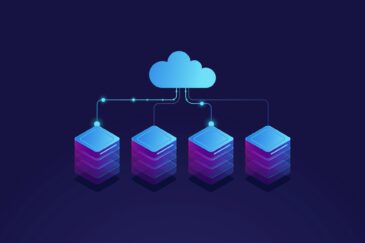Why NetSuite & Oracle ERP Cloud are the Leaders in Cloud Financial Management

- January 27, 2023
- Jhansi Rani
- 0
For several reasons, NetSuite and Oracle ERP Cloud are considered leaders in the cloud financial management suite space. Both platforms offer comprehensive financial management features, including accounting, financial planning and analysis, revenue management, and more. Here’s why they are considered the leaders in cloud financial management.
Financial Management Capabilities
- Accounting
They provide a wide range of accounting capabilities, including general ledger, accounts payable, accounts receivable, and financial reporting.
- Financial Planning and Analysis
This includes budgeting, forecasting, and reporting tools to help businesses make informed financial decisions.
- Revenue Management
They allow businesses to manage their revenue recognition processes, including tracking deferred revenue and recognizing revenue as per regulations.
- Order-to-Cash
They streamline the process of order management, invoicing, and cash collection.
- Procure-to-Pay
They offer a comprehensive procurement solution for businesses to manage their purchasing process, from creating purchase orders to paying vendors.
- Multi-Currency and Multi-Language Support
They support multiple currencies and languages, making them a good fit for businesses operating in multiple countries.
- Auditing and Compliance
They provide an audit trail of all financial transactions, helping businesses comply with various regulatory requirements.
- Tax Management
They offer built-in tax compliance for multiple countries, including VAT, GST, Sales Tax, and more.
- Cash Management
They provide several tools to manage cash flow, including bank reconciliation and cash forecasting.
- Financial Consolidation
They enable businesses to consolidate their financial data across multiple subsidiaries, legal entities, and currencies.
Integrated Software Suite
NetSuite ERP Accounting and Oracle ERP Cloud offer integrated business management software suites with different modules designed to work together seamlessly. Integrating these modules allows streamlined data flow and increased efficiency, as users don’t have to manually input data into multiple separate systems. Additionally, the integration provides real-time visibility into different aspects of the business, allowing you to make more informed decisions with access to real-time information. The integration also provides a single source of truth for all data, eliminating the need to synchronize data between different systems, which can be time-consuming and error-prone.
For example, the financial management module integrates with the order-to-cash, procurement-to-pay, and revenue management modules so that when a sale is made, the revenue is automatically recorded in the financial module, and the inventory is automatically updated in the inventory management module. This evicts the need for manual data entry and reduces the risk of errors.
Both systems also integrate with third-party software, allowing businesses to connect to other systems they use, like marketing automation software, e-commerce platforms, or other enterprise systems.
Oracle Cloud Infrastructure
- Accessibility
Access data from anywhere, enabling greater flexibility and productivity. Employees can work from different locations, including remote work.
- Cost-effective
You don’t have to invest in expensive hardware and software, reducing upfront costs and ongoing maintenance expenses.
- Reliability
OCI is designed to provide high availability, meaning that the system is always available and can handle high traffic.
- Security
Multiple layers of security with necessary compliances to protect customer data, including encryption, firewalls, and intrusion detection systems.
- Automatic updates
Updates are installed automatically, ensuring that businesses always have the latest features and security updates.
- Integration
OCI enables easy integration with other systems, including third-party software, e-commerce platforms, and other enterprise systems.
- Sustainability
OCI reduces the need for physical servers, helping reduce energy consumption and environmental impact.
Oracle Cloud Infrastructure
NetSuite ERP Accounting and Oracle ERP Cloud offer flexible deployment options, meaning businesses can choose how they want to implement and use the software. Some of the deployment options include:
- Cloud-Based
This is the most popular deployment option, and it means that they are hosted on servers maintained by Oracle and accessed over the internet. This option provides businesses with easy scalability, accessibility, and cost-effectiveness.
- On-Premises
This option allows businesses to host the software on their servers, giving them more control over the system and the data. This option is typically used by large organizations that need to comply with specific regulatory requirements.
- Hybrid
This option allows businesses to use a combination of cloud-based and on-premises deployment, helping them leverage the benefits of both deployment options, such as the scalability of the cloud and the control of on-premises deployment.
- Customization
Build and deploy custom integrations, workflows, and applications that extend capabilities according to your unique needs.
- Prebuilt Content
Prebuilt integrations and industry-specific functionality allow businesses to quickly configure the software to meet their industry-specific needs.
Financial Reporting
NetSuite ERP Accounting and Oracle ERP Cloud provide real-time financial reporting, which allows businesses to access up-to-date financial information at any time. This can help enterprises to make more informed decisions, as they can access the most current financial data.
- Financial Dashboards
They improve visibility into key financial metrics, such as revenue, expenses, and cash flow, with detailed information on various aspects of the business, such as income statements, balance sheets, and cash flow statements.
- Financial Analytics
It allows users to drill down into financial data and gain insights into trends, patterns, and key performance indicators.
- Real-Time Integration
Combine real-time data from different systems, such as CRM, supply chain, and others, providing a single source of truth and the ability to analyze data cross-functionally.
- Mobile Analytics
Access financial data from your mobile devices, providing real-time visibility from anywhere.
NetSuite and Oracle ERP Cloud Services

Services
Products
Company
Copyright © 2024 Rite Software Solutions & Services LLP. All rights reserved.



